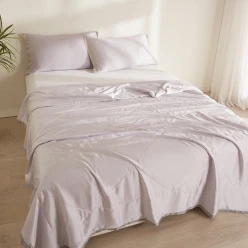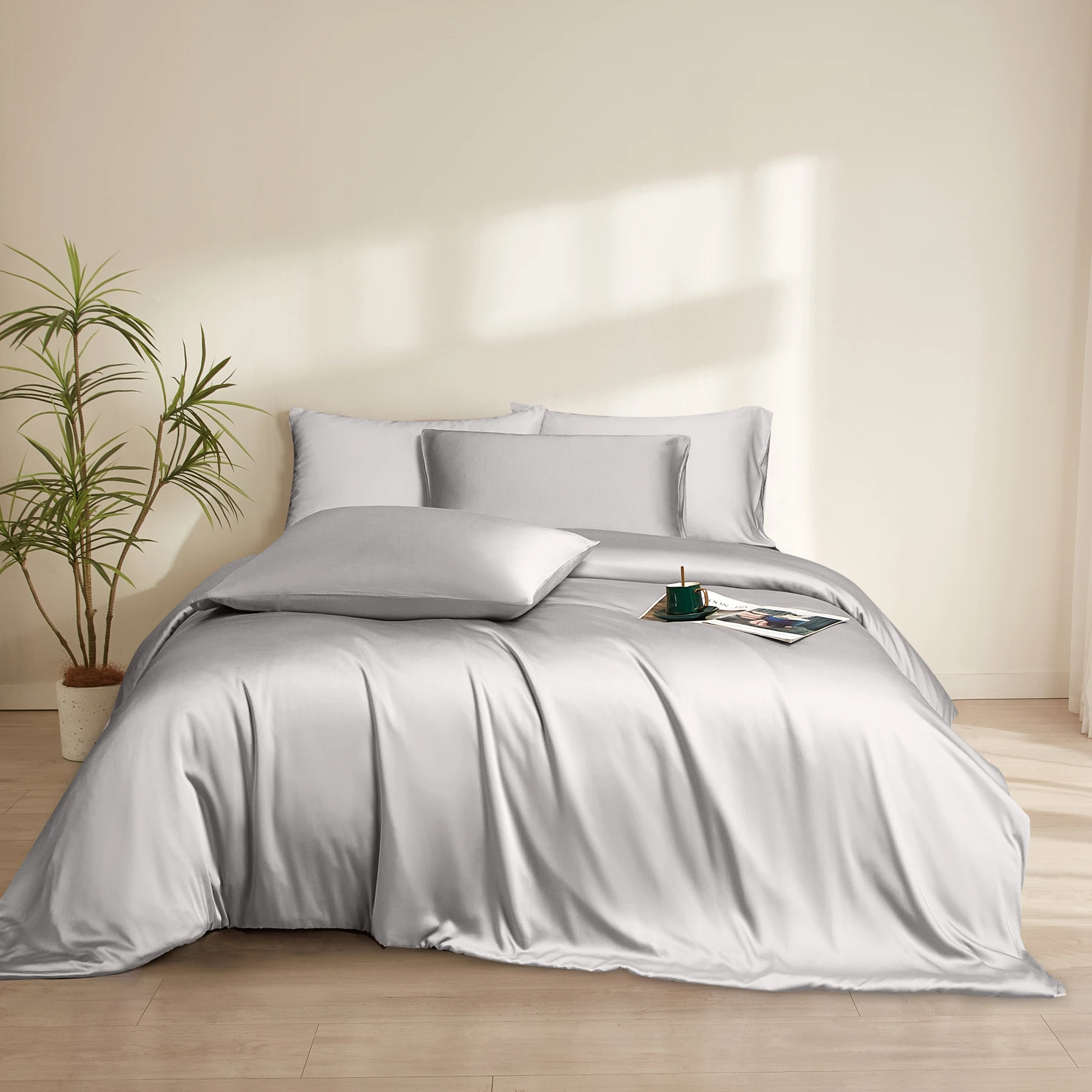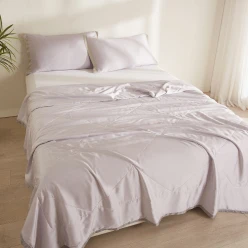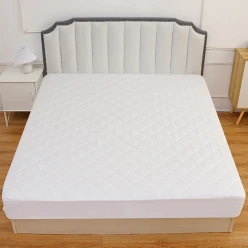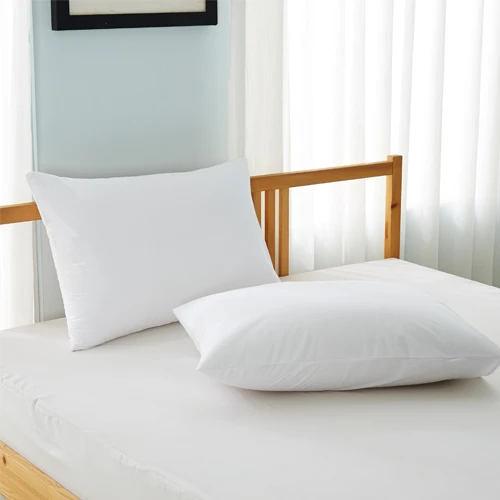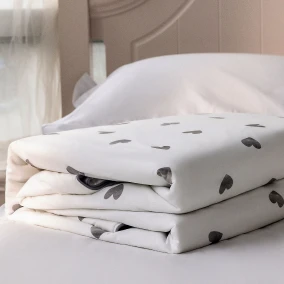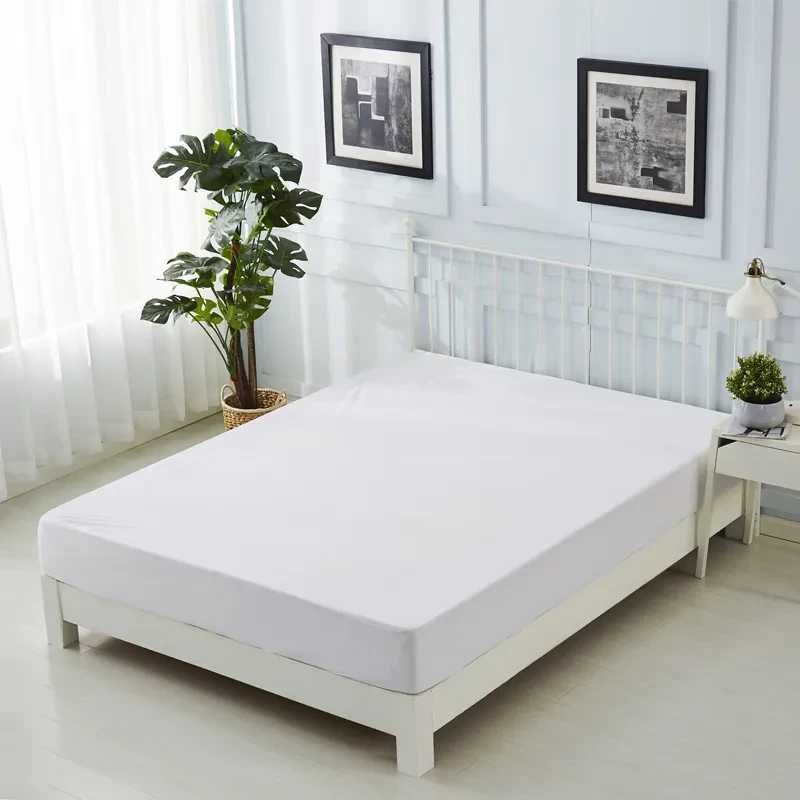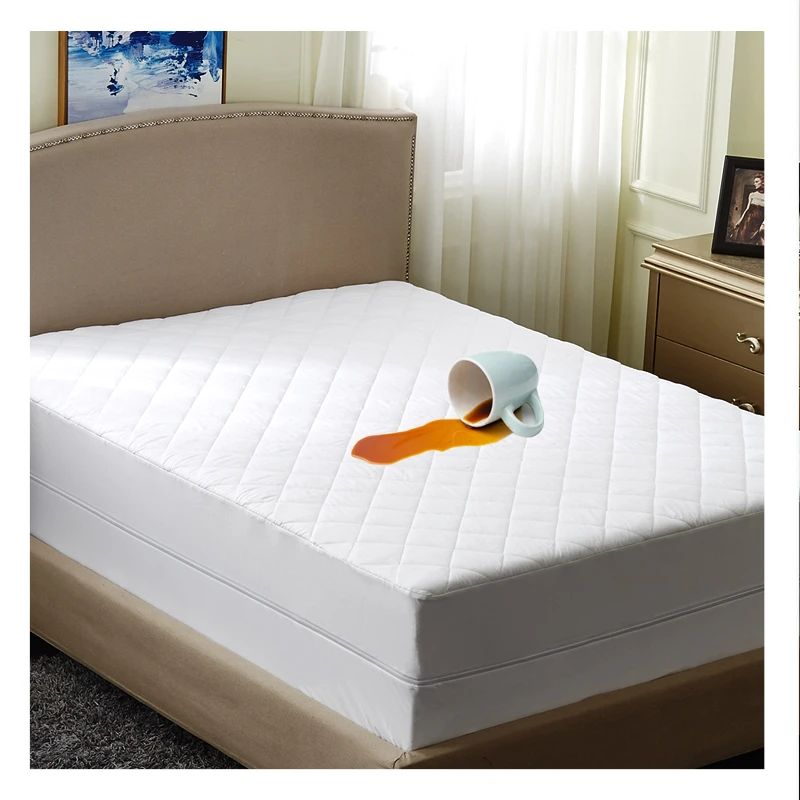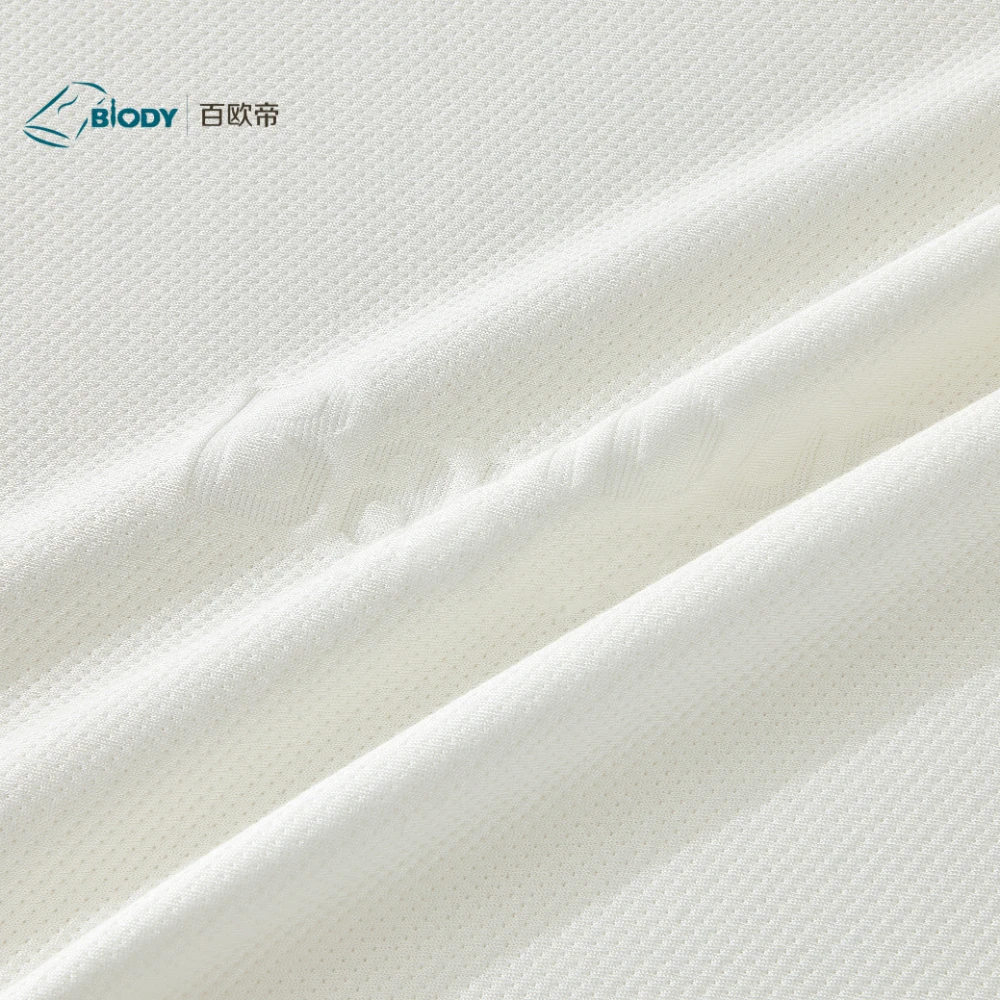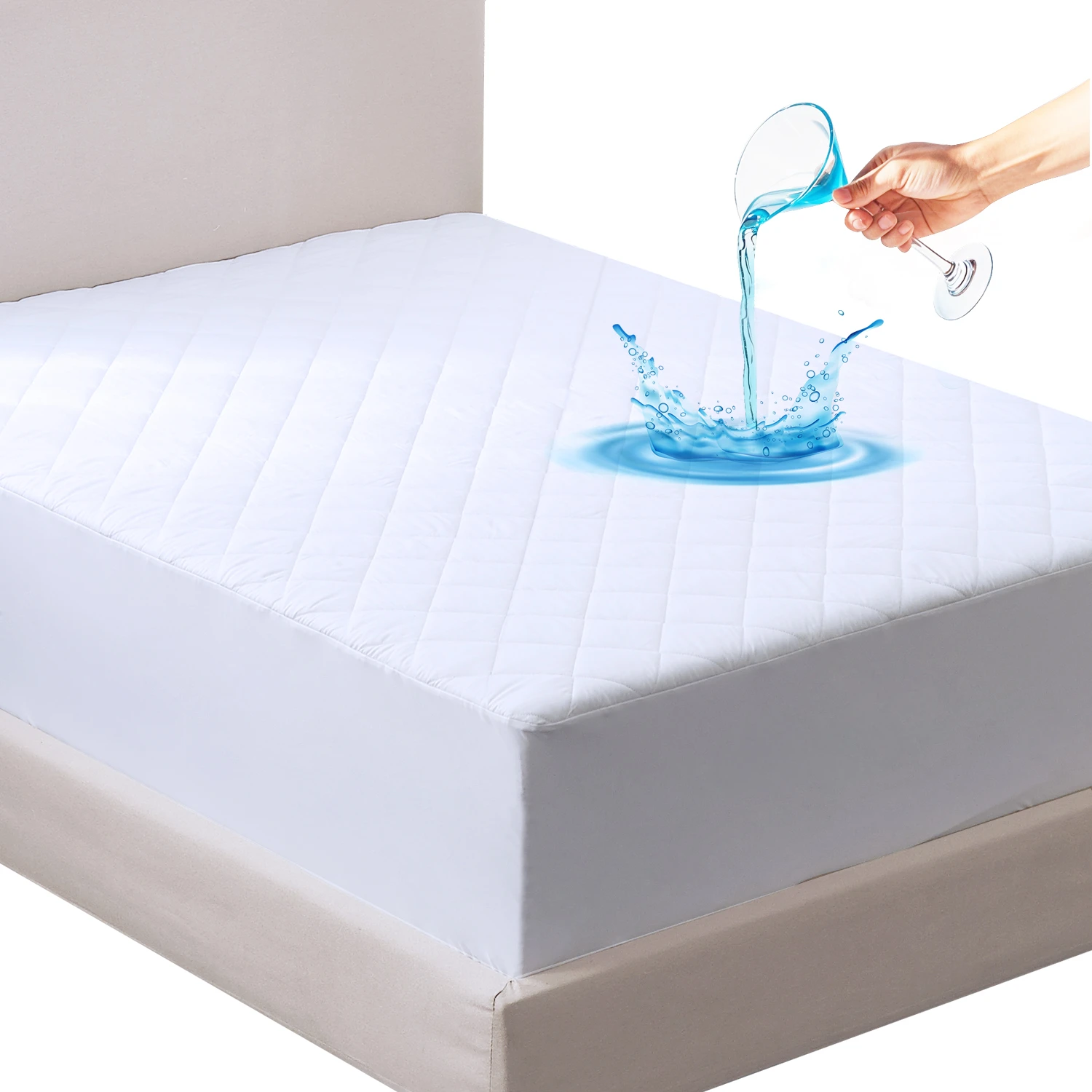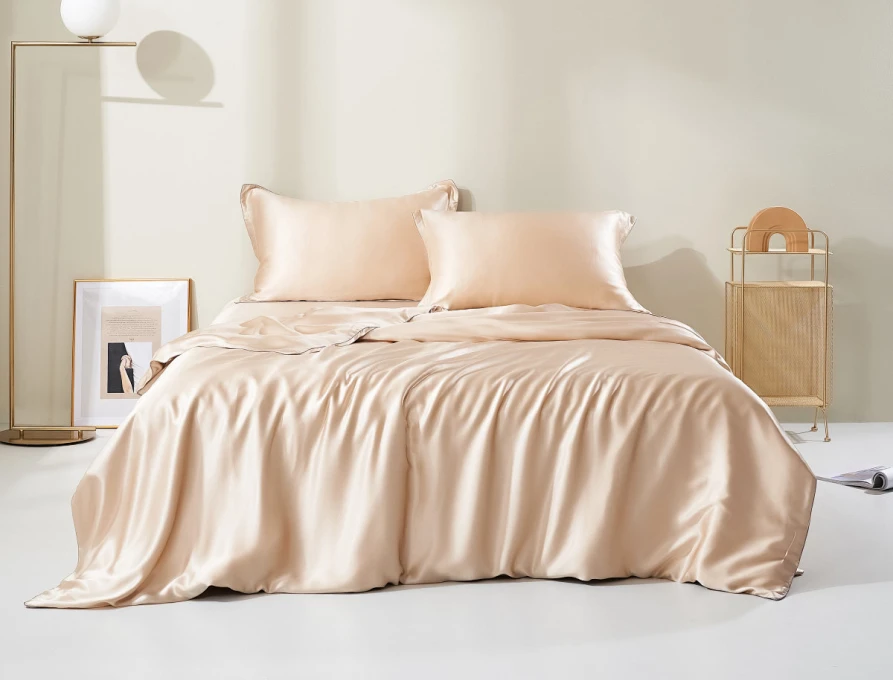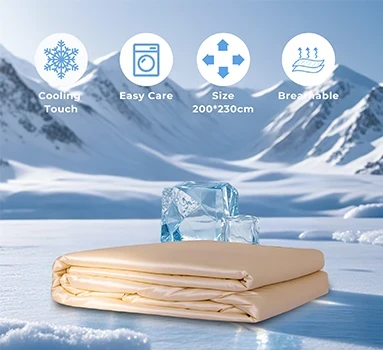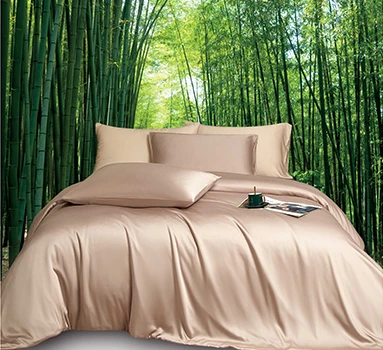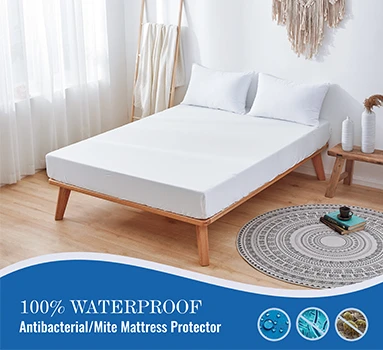
A mattress protector is a cover designed to fit over your mattress, offering protection against spills, stains, dust mites, allergens, and general wear and tear. It acts as a barrier that helps to extend the lifespan of your mattress by preventing moisture, dust, and bodily fluids from seeping into the mattress fabric. For people with allergies or asthma, mattress protectors are particularly helpful as they can reduce exposure to dust mites and other allergens that accumulate in the bed. In addition to protecting against spills and dirt, some protectors are waterproof, which is ideal for households with children or pets, as they offer an additional layer of protection against accidents. Most mattress protectors are easy to install, similar to a fitted sheet, and are available in a variety of materials such as cotton, polyester, or a combination of fabrics designed to keep the mattress cool or provide extra comfort. Using a mattress protector can also help preserve the warranty of your mattress, as many manufacturers require it to maintain the warranty in case of damage caused by spills or stains. While a mattress protector offers a significant layer of protection, it’s important to choose the right one to match your needs. Whether you need a hypoallergenic option, a waterproof protector, or something to add comfort, there’s a wide variety available to ensure that your mattress remains clean, hygienic, and in good condition for years to come.
How Often Should I Wash My Mattress Protector?
It’s recommended to wash your mattress protector every 1-2 months, or more frequently if it becomes soiled. Regular washing helps to keep the protector clean and free from dust mites, bacteria, and allergens. Always follow the manufacturer's care instructions, as some protectors may require specific washing methods depending on the materials used. Washing your mattress protector regularly can also extend its lifespan, ensuring that it continues to offer effective protection for your mattress.
How Do I Choose The Right Mattress Protector For My Needs?
When choosing a mattress protector, consider factors like material, comfort, breathability, and any specific needs like hypoallergenic or waterproof features. For example, if you have allergies, opt for a hypoallergenic protector made of cotton or other natural fibers that can block allergens and dust mites. If you tend to overheat while sleeping, choose one with cooling properties or moisture-wicking fabric. For families with children or pet owners, a waterproof mattress protector can be essential for safeguarding against accidents. Additionally, make sure the protector is the right size for your mattress and offers a snug, secure fit. The level of comfort provided by the protector is also important—some protectors add extra cushioning to improve the sleep surface, while others are designed to be ultra-thin to preserve the feel of your mattress. With so many options available, selecting the right mattress protector largely depends on your individual needs, lifestyle, and preferences.





